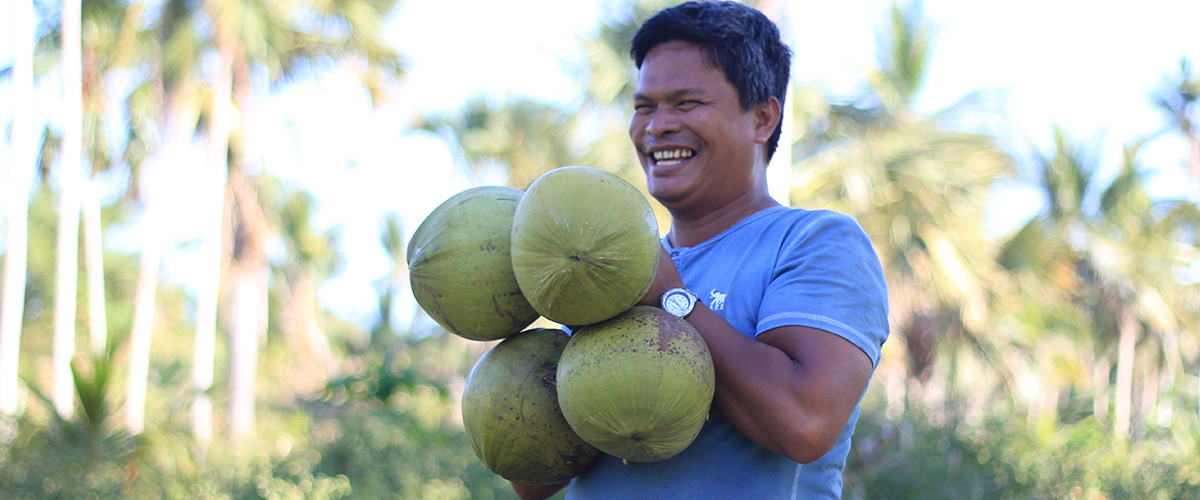© 2025 Fresh Trading Limited. All rights reserved. innocent and the Dude logo are registered trademarks of Fresh Trading Limited.
caring for coconuts
In the Philippines, the coconut tree is called the ‘tree of life’ because every bit of it (from the roots to the fruit) can be used for something. That makes it a zero-waste plant and one of the world’s most sustainable and versatile crops – it’ll give you water, milk, oil and a pretty spot-on impression of a horse going for a run.
When it comes to coconuts, we get ours from premium Fair Trade Certified™ suppliers. This helps refill the world’s dwindling coconut supply, offers farmers protection against the dodgy side of the coconut business and keeps younger generations on the farm. Since 2013, Fair Trade coconut farmers and workers have earned more than $2.3 million to invest in tree replanting, nursery creation, disaster relief programs, crop diversification and other projects to help the community.

Buying Fair Trade can also help out if an emergency lands on the doorstep. Fair Trade Certified™ farmers have access to a ‘calamity fund’, which came in handy this year when the pandemic caused an enhanced community quarantine (ECQ) to be declared in Luzon, the Philippines. This meant that coconut farmers either couldn’t get to their crops or weren't able to deliver them to be processed. The calamity fund helped farmers get access to the essentials they needed to keep them afloat.
This helped thousands of coconut farmers provide for themselves and their families during tough times, even without the guarantee of work to see them through. If we weren’t paying the premium that we do for our coconuts, this fund (and projects like it) wouldn’t have been possible. The tree of life, indeed.
